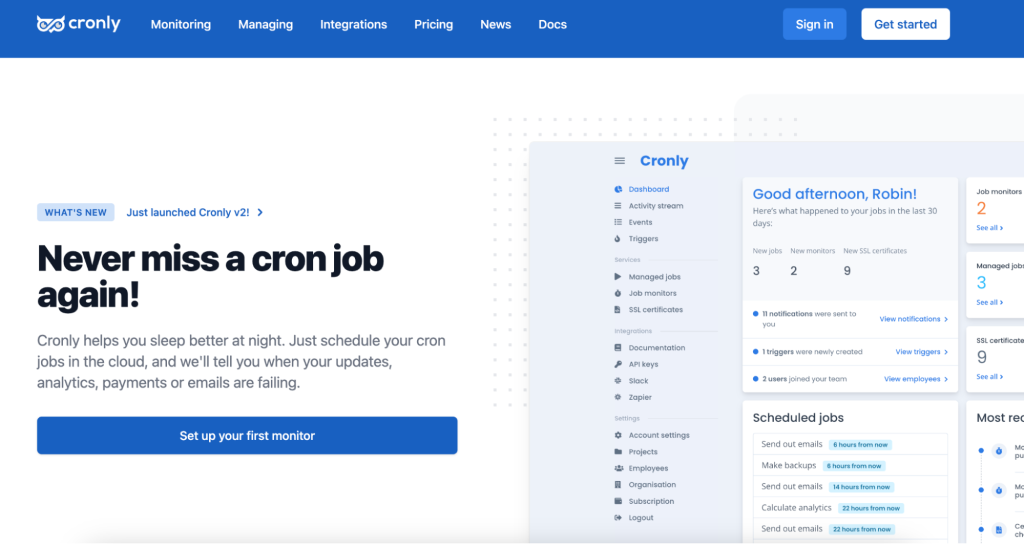
In the world of system administration, cron jobs hold a pivotal role. These automated tasks, scheduled to run at predetermined intervals, are the silent workhorses of a smooth operating system. They handle a diverse range of tasks, from system maintenance operations and sending out email notifications to backing up data and more. Despite their significance, cron jobs are often neglected in terms of regular system monitoring.
Potential Problems with Cron Jobs
Various reasons might cause cron jobs to fail in their execution – these could include a script error, a system update altering dependencies, or even a temporary network glitch. If the failed cron job was tasked with a critical operation, such as backing up customer data, the implications could be substantial. Without adequate monitoring, such failures might go unnoticed until the damage has already been done.
Real-world Consequences of Cron Job Failures
Imagine a scenario where your trusted backup doesn’t exist because the cron job responsible for it has been failing unnoticed for weeks. Alternatively, consider a situation where a cron job, intended to clean up temporary files, isn’t functioning, causing your server disk space to slowly fill up, eventually bringing the system to a standstill. These are not purely hypothetical situations but are real-world scenarios that can occur.
Insights Gained from Monitoring Cron Jobs
Cron monitoring can provide valuable insights into your system. Cron jobs, through their regular operations, can generate crucial data about the system, such as resource usage patterns, potential bottlenecks, or inefficiencies. Monitoring cron jobs allows for the collection of this data over time, proving invaluable when troubleshooting issues or planning for capacity upgrades.
Cron Job Monitoring for System Security

Unusual cron job activity can often indicate a security breach. An unexpected increase in the frequency of a certain cron job or the emergence of new, unknown cron jobs can suggest your system has been compromised. Regular monitoring can thus serve as an additional layer of security for your system.
How to Monitor Cron Jobs Effectively
Now, how does one monitor cron jobs effectively? At a basic level, most Unix-like systems offer an email-based alert system where the output of a cron job is sent to a specified email address. However, this method can quickly become overwhelming if you have multiple cron jobs or if the cron jobs are verbose in their output.
Tools for Cron Job Monitoring

Fortunately, there are numerous tools available that can simplify the process. These tools can provide a dashboard view of all your cron jobs, enable you to set up alerts for job failures, and even offer statistics about job runtimes. Popular options include Cronly.app, Cronitor, Healthchecks.io, and Dead Man’s Snitch, each with its unique features and advantages.
Real-World Example: E-commerce Inventory Management
To illustrate the importance of cron job monitoring, consider a real-world example. Let’s say you have an e-commerce website where a cron job is responsible for updating inventory based on supplier data. If this cron job fails, your website could display incorrect stock information, leading to overselling, customer dissatisfaction, and a loss of trust in your brand. With proper monitoring in place, you could be alerted to the failure and fix it before any orders are affected.
Conclusion
Given the potential consequences of failing cron jobs and the insights they provide into the system, it is well worth investing in a robust cron job monitoring setup. Remember, in the realm of system administration, prevention is always better than cure, and that is precisely what cron job monitoring offers – a way to detect and resolve issues before they escalate into substantial problems. With the right tools and practices, you can ensure that your cron jobs, and thus your system, run smoothly and efficiently, contributing to the overall stability and reliability of your services.